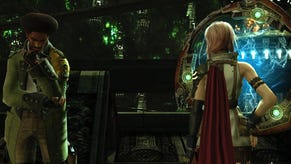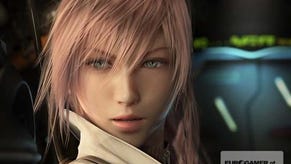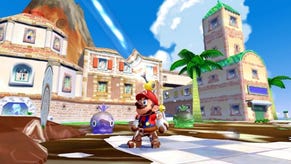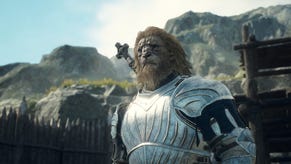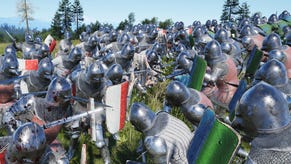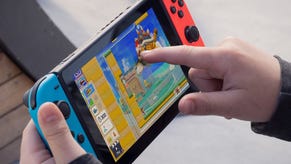FFXIII: Mistakes, conflict, standstill
Game's makers slice open the cadaver.
Final Fantasy's arrival on current gen hardware was good, but not brilliant - and game creators Motomu Toriyama (director) and Akihiko Maeda have now explained why.
There was squabbling, no unified vision and an E3 2006 target-render video that came back to haunt the developers time and time again.
"The trailer was merely a visual concept, and we had not yet created anything playable at that point," Toriyama and Maeda revealed to Game Developer magazine (via Game Set Watch).
"However, it became clear that, at the time, there were actually very few members who saw the trailer as a representation of what we wanted to achieve with Final Fantasy XIII.
"This lack of a shared vision became the root of many conflicts that arose later in development."
Despite having been announced in 2006, Final Fantasy XIII wasn't released in Europe until March 2010, although Japan played months earlier from December 2009.
In Japan, Final Fantasy XIII was PS3 exclusive; in the West, Microsoft secured a shock simultaneous release on Xbox 360. It was long believed that Square Enix hadn't begun building the Xbox 360 version until the PS3 game had been finished. But it now appears that multi-platform development had been hindering the project long before.
"Because we were so focused on creating an engine for next-gen hardware that could be utilised across all platforms, we made the mistake of trying to accommodate every single project that was in progress at the time," Toriyama and Maeda recalled.
"This created a standstill between the engine and game development teams, because if the engine's specs couldn't be finalised, neither could the game's. As the debates continued without resolution, the timetable was also affected."
All the while, Toriyama, Maeda and the powers that be were "very conscious" about "increasingly harsh" European and American attitudes towards the traditional JRPG formula. Linearity and command-based battles were "perceived negatively", and there were "concerns about whether JRPGs would still be accepted in the West".
Unfortunately, as Square Enix's flagship IP, the responsibility of capturing a global audience fell on Final Fantasy XIII. "Because Final Fantasy XIII's mission was to succeed worldwide, we could not ignore this issue, as we felt it could deeply affect the future of the franchise," Toriyama and Maeda said.
International focus groups were deployed, but it was "too late" in the development cycle to incorporate any of the feedback. The practice was deemed "worthwhile" until a misguided team thought the management was about to lump more work on them and yet more "conflicts" arose.
"Even at a late stage of development we did not agree on key elements of the game, which stemmed from the lack of a cohesive vision, the lack of finalised specs, and the remaining problems with communication between departments," Toriyama and Maeda added.
What brought the whole project back on track was something most RPGs tend to avoid: a demo. The sampler - included on the Blu-ray release of animated film FFVII: Advent Children - wasn't part of the "original plan", but allowed Square Enix to do a vertical slice of game development and make something playable there and then. This was a procedure "never actually practised within our teams unless there was a company requirement".
The effect was sobering, and the demo - released only for Japan in April 2009 (but played and appraised by Eurogamer nonetheless) - became an "essential key learning point" for Toriyama, Maeda and entire team. After that, productivity increased, due to a "much better understanding" of what was left to do. The whole process became "so effective we did not miss a milestone", Toriyama and Maeda said.
Final Fantasy XIII was released in Europe and the US on 9th March 2010. The JRPG might not have raised the roof, but Eurogamer still deemed it "faultlessly accomplished, gorgeous to behold and, in the long run, thoroughly enjoyable". Oli Welsh scored the game 8/10.
What's more, FFXIII sales were big. As of the end of March 2010, Square Enix had accounted for an impressive 5.5 million Final Fantasy XIII sales around the world.
There has even been talk of a sequel specific to Final Fantasy XIII.
The next big-budget single-player Final Fantasy adventure will be Final Fantasy Versus XIII. It's an action-RPG and it was announced alongside Final Fantasy XIII at E3 2006. However, we still know next to nothing about the game.
Moody character designer Tetsuya Nomura is at the helm of the project, and Eurogamer had a rare opportunity to talk to him in 2007.
The most recent development on FF Versus XIII was producer Yoshinori Kitase stating that he couldn't "commit" to a 2011 release.





